Money, no refund! I spent 6000 yuan to buy a fitness card, but the gym didn’t open and I didn’t give a refund.
CCTV News:All along, many "gyms" have implemented the consumption mode of membership and prepaid cards. However, this mode of operation has also brought troubles to many consumers. Not long ago, Ms. Jin in Shenzhen was miserable because of a fitness prepaid card. In July last year, Ms. Jin met a salesman who claimed to be Shenzhen Sailewei Fitness Management Co., Ltd. in the community. He claimed that a branch would be opened soon in this community, and a certain amount of money would be pre-stored and a fitness annual card would be applied within one week, which would give a great discount. Subsequently, with the assistance of the staff, Ms. Jin signed a fitness membership contract and paid 5996 yuan for a personal supreme five-year card. However, the gym in Ms. Jin’s community has not been opened for a long time. After half a year, the opening plan of the store has been cancelled.
It is difficult to refund prepaid cards. Fitness institutions say that they can only transfer to stores for consumption.
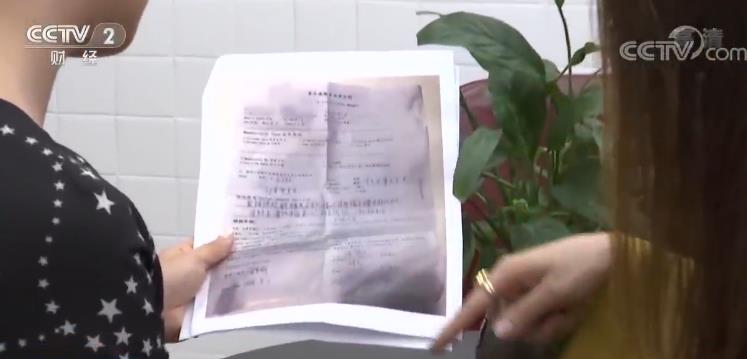
The gym didn’t open at all, but the prepaid money was still in the card. After the incident, Ms. Jin repeatedly communicated with the staff of Sailewei Gym and wanted to get her money back. But the answer she got was that she couldn’t get a refund and could only transfer to another store for consumption.
Ms. Jin, Consumer:He forced me to go to their other gym all the time, but I said I wouldn’t go. I run a gym in our community, but now you don’t open it. I think you should give me my money back.
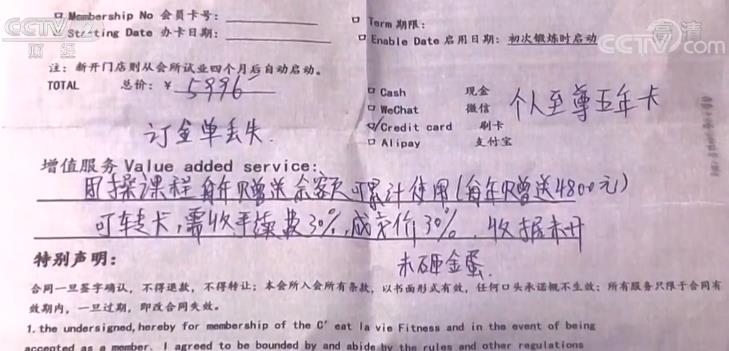
The reporter’s investigation found that in addition to the unopened branch in Ms. Jin’s community, Sailewei Company has two stores in Shenzhen, of which Nanshan Store ceased to operate in March this year. In order to find out the truth, the reporter came to … … In Shuisong Building outside Xiasha subway station, the number of "Sailewei Fitness" is clearly hung on the first floor of the street. The reporter saw in the reception hall of the gym on the third floor that the whole wall behind the service desk was marked with the English sign of "Sailewei Fitness". After the front desk staff learned that the reporter had come to know about the refund, they called the fitness consultant for reception.
Reporter:What about her five-year card? Don’t return it?
Gym staff:Her card can be stopped and she can be transferred here to exercise.
Reporter:Can’t I get a refund?
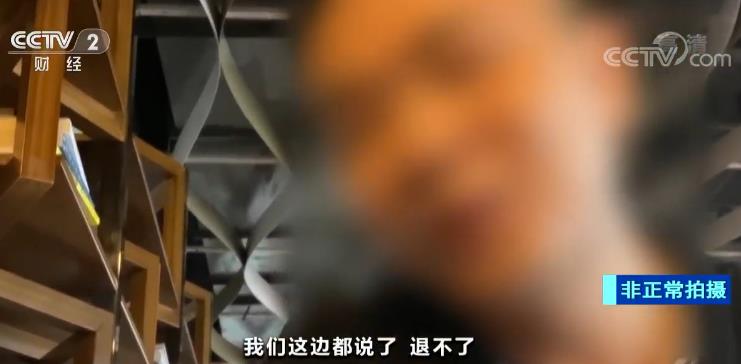
Gym staff:I told you, I can’t return it, and Sailawei went bankrupt, which has nothing to do with us.
Reporter:Who does the member go to in this situation?
Gym staff:There’s nothing we can do, and I don’t know who you should go to.
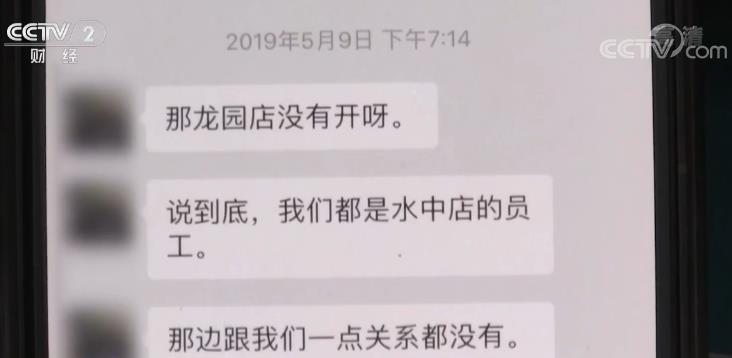
Ms. Jin has repeatedly communicated with the staff of the fitness chain about the refund, and the negotiation has been unsuccessful. Up to now, the full refund has not been made.
Consumer Council of Shenzhen: Refund of fees and running away become a hot spot of complaints.
Like Ms. Jin, it is not uncommon for a card to be returned after one minute. Recently, the Shenzhen Consumer Council released a set of data. From January to October this year, there were more than 19,000 prepaid consumer complaints. The number of complaints about the fitness industry is increasing exponentially year by year.
Feng Nianwen, Secretary General of Shenzhen Consumer Council:There are two typical situations. One is that after paying the advance payment, the consumer finds that the quality commitment of the service is not as good as the information that the consumer was informed at the beginning, that is, the goods are not on the right board, simply speaking. The second is to run away with prepaid consumption. After the consumer pays a sum of money, the business disappears.

According to the staff of Shenzhen Consumer Council, the number of complaints about the fitness industry is increasing exponentially year by year. It mainly focuses on five major issues, such as fee refund, merchants running away, closing doors, private education, merchant transfer, card transfer and card suspension. Among them, the problem of refund is the most, accounting for 34.39%, followed by the problem of merchants running away and closing doors, accounting for 24.54%. The Consumer Council of Shenzhen pushed the operators who "ran away" in the prepaid consumption field and failed to refund the prepayments of consumers as agreed, and their main responsible persons to the Shenzhen Public Credit Center for public disclosure through the Shenzhen Credit Network.
Pre-paid consumer complaints become hot spots. Supervision should start from the source.
Since 2014, prepaid consumption has been a hot issue for national consumer organizations to accept complaints. So, how can we curb such problems from the source?
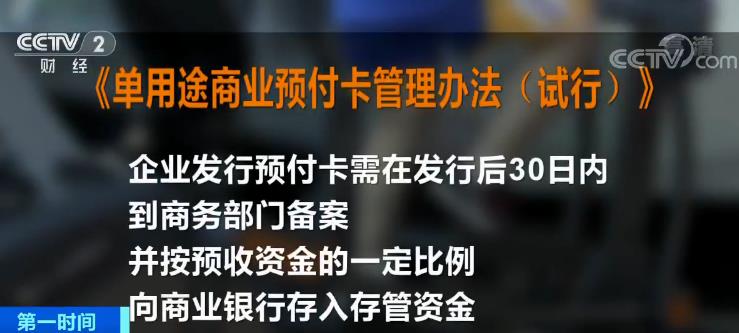
Experts introduced the Measures for the Administration of Single-use Commercial Prepaid Cards (Trial) promulgated by the Ministry of Commerce on September 21, 2012. The "Measures" stipulate that enterprises issuing prepaid cards should go to the commercial department for filing within 30 days after issuance, and deposit depository funds in commercial banks according to a certain proportion of the funds received in advance. However, in reality, whether an enterprise has filed a record or deposited funds basically depends on the voluntary self-discipline of the card-issuing enterprise, and the use of funds is even more difficult to track and supervise.
Experts said that at present, China has not standardized the subject and behavior of issuing cards in a targeted manner in combination with the characteristics of prepaid consumption, which leads to the lack of feasibility and timeliness in the process of standardizing prepaid cards. Protecting rights afterwards is a passive move. The key to prevent the phenomenon of prepaid card consumption from flooding is to supervise from the source.
It is understood that in August last year, the General Office of the State Council issued "Opinions on Standardizing the Development of Off-campus Training Institutions", which requires that the state regulations on financial and asset management should be strictly implemented, and the charging period should be coordinated with the teaching arrangement, and the fees that span more than three months should not be charged at one time. In addition, some places are also actively exploring corresponding management methods. Recently, the Beijing Municipal Bureau of Market Supervision, the Beijing Municipal Bureau of Commerce, the Beijing Municipal Education Commission and other units have drafted seven documents, including Opinions on Strengthening the Management of Prepaid Consumer Market (Draft for Comment), and publicly solicited opinions on the website of the Beijing Municipal Bureau of Market Supervision.
Chen Yinjiang, Deputy Secretary General of china law society Consumer Protection Law Research Association:In this draft for comments, for example, before you issue a card, you must go to this kind of relevant department for the record. (Delete) Then it means that the regulatory authorities know all about this fund that you are operating. Then if you have obvious problems, it can be to take some timely measures.
The Measures of Zhejiang Province for the Implementation of the Law on the Protection of Consumer Rights and Interests in People’s Republic of China (PRC) stipulates that "business operators can only issue single-use commercial prepaid vouchers six months after the date of approval and registration of their business licenses". "The amount of a single registered prepaid voucher provided by an enterprise as a legal person shall not exceed 5,000 yuan, and the amount of a single unregistered prepaid voucher shall not exceed 1,000 yuan."
The Regulations on the Protection of Consumers’ Rights and Interests in Jiangsu Province stipulates that if an operator provides goods or services by issuing a single-use prepaid card, the consumer has the right to ask for a refund without reason within 15 days from the date of payment. A single registered card shall not exceed 5,000 yuan, and a single bearer card shall not exceed 1000 yuan.